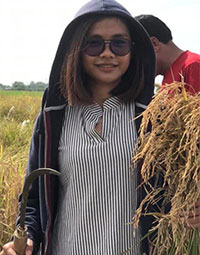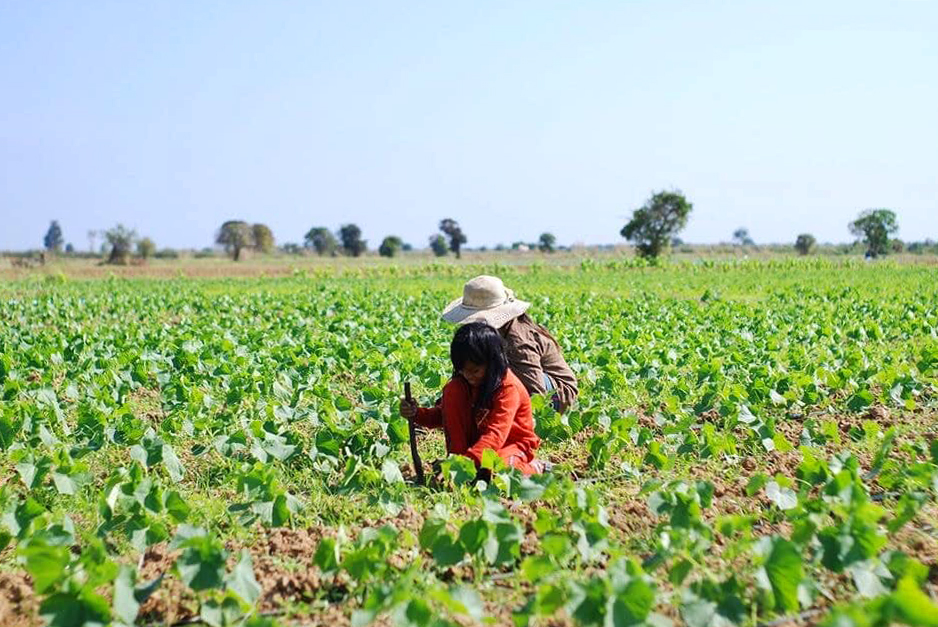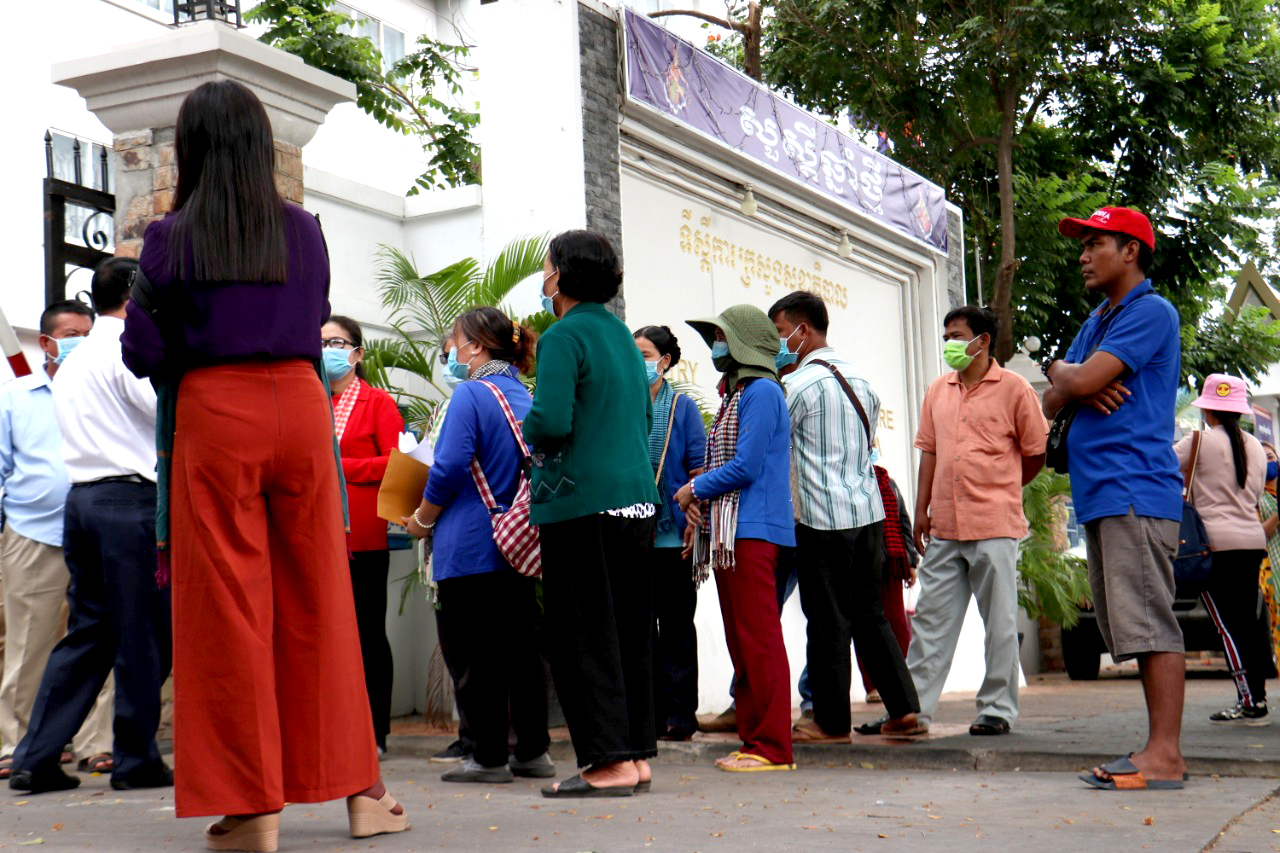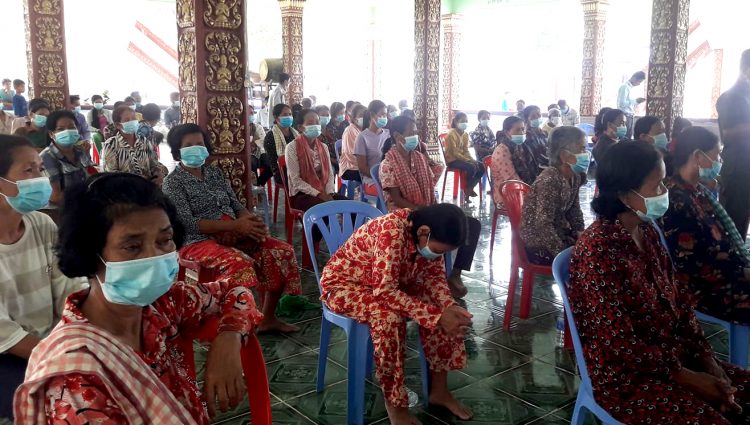 Food And Rights Talk is a series of interviews with PAN Asia Pacific (PANAP) partners across the globe to find out the situation of rural peoples, in relation to food security and human rights, amid the COVID-19 pandemic.
Food And Rights Talk is a series of interviews with PAN Asia Pacific (PANAP) partners across the globe to find out the situation of rural peoples, in relation to food security and human rights, amid the COVID-19 pandemic.
This week, we talk with Keo Chanra, secretary general of the Coalition of Cambodian Farmer Community (CCFC), an association composed of farming communities that work towards addressing land issues, natural resource extraction, and forced evictions.
PAN Asia Pacific (PANAP): What are the most significant impacts that COVID-19 pandemic on the daily activity and livelihoods of farmers in Cambodia?
Chanra: We see the situation here regarding the COVID-19 pandemic is not so bad. The case numbers do not rise as fast (as in other countries). However, the situation of workers and farmers is not so good. Currently, our communities face many issues not really because of COVID-19, but because of livelihood facing as the the situation here not return as normal yet. There are many workplaces that are still closed, from KTVs to garment and footwear factories. Many workers lose their jobs. Most of these workers have family members that are farmers.
In Cambodia, 90% of farmers are indebted. They get their capital from micro-financers, or from the income of family members who have migrated from their hometowns and are working in different areas as agro-industrial workers or as informal workers. When COVID-19 came, these family members lost their jobs and they don’t have money to pay for the farmers’ debts. So they do not have the capital to start production.
Many of our members are also farmers who cultivate agro-industrial crops like rubber and sugarcane. These farmers are suffering from the low price of their products these days because of the lack of demand. Because of low prices, they don’t have money to pay back the loans they took out from micro-financers.
Earlier this week, I visited a rural community near Phnom Penh. The community there is badly affected because their family members are losing their jobs. But they cannot easily seek for food in their area because mass gatherings are not allowed. Their basic rights to freedom of assembly and expression are affected. As a result, the problems they are facing are not voiced out to the public—they have to struggle with these problems themselves. Outsiders or NGOs cannot help them during this time because it is not allowed. Just yesterday, one of our staff went to one province to interview farmers about their situation, but the activity was banned by the commune council because of COVID-19.
PANAP: Has the government made any interventions to assist these workers who have lost jobs?
Chanra: The government cooperates with the private sector. Some factories have temporarily closed and the government shared the responsibility for paying the salary of workers. The company pays 30 USD and the government pays 40 USD, so one worker gets 70 USD per month as they stay at home. But this assistance is not widely provided, it is only for bigger companies who have thousands of workers. There are many others, like entertainment workers, massage workers, don’t receive any assistance. So the intervention seems not to be equal and fair to all yet.
PANAP: How is the food security situation? Do people have access to food?
Chanra: Across the country, food prices have increased, and it’s difficult for the poor to buy. Borders with neighbouring countries like Thailand and Vietnam have been locked. Cambodia imports many of its food from these countries, so when the borders were blocked, the quantity of imports are not like before. This has affected food prices. For instance, normally, one kilo of beef is 35,000 KHR (8.50 USD), but during the pandemic the price is now 42,000 KHR (10.20 USD).
PANAP: What are the measures that the government has done to ensure food security?
Chanra: To ensure food security, the Ministry of Agriculture has encouraged farmers to plant, they call it Good Agriculture Practice (GAP). In Cambodia, many farmers nowadays don’t have big lands, only small lands. So they can practice GAP even in their own home and their own land, a kind of home gardening to serve their daily food needs.
Also, the government has disallowed the exporting of rice abroad, except for luxury (fragrant) rice. I think that this is good in terms of ensuring food security inside the country. But if we look closer, who manages or controls the buying of rice from farmers? It is these big rice milling companies. Farmers sell their rice to these companies by could not control the price. So the government is just focusing on the amount of rice that we have, but not on the farmers, and how the rice industry is controlled by a few big companies that can also dictate rice prices.


PANAP: You said earlier that Cambodia is dependent on food imports. Do you think that the pandemic is a good time to start developing your local agriculture industry more?
Chanra: Yes, we have been complaining about this for many years. We call ourselves an agricultural country but we import many of our food from our neighbouring countries. It is a good time for reflection, to see what Cambodia can do to promote the agriculture sector.
PANAP: Cambodia has among the lowest number of COVID-19 cases in ASEAN and still has zero deaths. Why do you think this is so?
Chanra: One opinion is that it may be because of the good practice and timely interventions of the government. Another opinion is that it can be because of lack of mass testing. Here, there is no mass testing, so many people still have doubts regarding the number of cases that are being reported. But we cannot say anything because when someone criticizes government intervention on COVID-19, they are charged and accused, sometimes they are immediately arrested. So they don’t want to raise criticisms in public.
PANAP: What are the health interventions that the government has done?
Chanra: The Ministry of Health updates the rate of COVID-19 infections everyday, they produce informational materials like posters and videos to educate the public, they provide masks and other protective equipment. But we see that people don’t change their behaviours that much. There are still gatherings in some places, and the government takes action—sometimes using the reason of COVID-19 to take action against groups that are critical of them, like NGOs.
PANAP: How is CCFC helping farmers cope with the crisis?
Chanra: We are trying to augment our labor fund to support our members. Also at the end of April, together with partners, we submitted several petitions to ministries, seeking for their support. We asked the Ministry of Health to provide small-scale farmers and urban poor communities with masks and food aid. We submitted an open letter to the Ministry of Economy to request them for intervention on the suspension of returning loans, because workers and farmers have been suffering from loss of income. We also sent a petition to the Ministry of Agriculture and Land Management to give farmers their land and MAFF to provide them with technical support for the Good Agriculture Practice.
We are starting to collect information and document farmers who really need support. We desire to strengthen our farmers’ capacity to cultivate food during the pandemic. We are also seeking outside funding support to respond to this food emergency. Many farmers, in reality, don’t fear COVID-19, but they fear that they won’t have food to eat because many of them cannot afford food, whose prices have gone up.

PANAP: What can you say about observations by the international community that the COVID-19 pandemic is being used by the Cambodian government to silence critics?
Chanra: Well, a journalist was arrested when he repeated the quote of Prime Minister Hun Sen about the government not being able to help tuk-tuk drivers who have lost their income because of COVID-19. It is threatening for anyone speak or raise issues regarding COVID-19, especially if they criticize government intervention. But we as NGOs still do our work because we think we are doing nothing wrong. You know, when we submitted our petitions to the relevant ministries, 9 farmers who joined in the submission, they were asked questions from 3 pm to 10 pm. They asked them who are the groups behind these petitions. But those demands are not from us, those points in the petition were raised by the farmers themselves. We are just here to provide technical support and respond to their problems as we are in a network. We don’t think we are doing something wrong.###








Discussion about this post